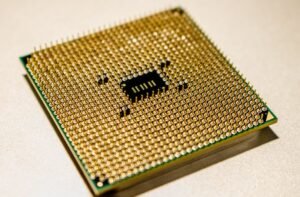Can I Download Artificial Intelligence?
Artificial Intelligence (AI) has become one of the most talked-about topics in recent years. As the technology continues to advance rapidly, many people are curious about whether they can download AI. In this article, we will explore the concept of downloading AI, its current capabilities, and the potential future of AI availability.
Key Takeaways:
- Downloading Artificial Intelligence directly is not possible.
- AI models and algorithms can be downloaded for certain tasks or applications.
- AI is typically offered as a service through APIs or software platforms.
- Developers and researchers can access pre-trained AI models for various applications.
What is Artificial Intelligence?
**Artificial Intelligence (AI)** refers to the simulation of human intelligence in machines that are programmed to think and learn like humans. It encompasses a wide range of technologies, including machine learning, natural language processing, computer vision, and more.
**One interesting application of AI** is in autonomous vehicles, where AI algorithms enable cars to navigate and make decisions based on real-time data.
Downloading AI
When people ask, “Can I download AI?” they often mean downloading an entire AI system or having an AI entity on their local device. However, **downloading Artificial Intelligence directly is not possible**. AI is not a standalone software or a single entity that can be downloaded and installed.
What is possible, though, is **downloading AI models and algorithms** that have been trained to perform specific tasks or applications. These models can be used for various purposes such as image recognition, natural language processing, sentiment analysis, and more. Several AI platforms and libraries offer pre-trained models that can be downloaded and used by developers and researchers.
**For example**, Google’s Tensorflow library provides a wide range of pre-trained models that developers can download and use to build AI-powered applications quickly.
AI as a Service
Instead of downloading AI as standalone software, **AI is typically offered as a service** through APIs or software platforms. Companies like IBM, Microsoft, Google, and Amazon provide AI services that developers can integrate into their applications. These services include natural language processing, speech recognition, image recognition, and more.
**One interesting aspect of AI as a service** is that it allows developers to harness the power of AI without having to build and train their own models from scratch. By leveraging existing AI services, developers can save time and effort while still benefiting from AI capabilities.
Potential Future of AI Availability
The availability of AI is expected to continue to increase in the coming years. As the technology progresses, more AI models and algorithms will be developed, offering a wider range of capabilities to users. Furthermore, advancements in edge computing may enable AI to be more accessible on local devices.
**It is fascinating to think about** a future where AI capabilities are more ubiquitous and easily downloadable. This could potentially empower individuals and businesses to create AI-driven solutions tailored to their specific needs.
Table 1: Comparison of AI Service Providers
| AI Service Provider | Key Features |
|---|---|
| IBM Watson | Natural language processing, machine learning, image recognition. |
| Microsoft Azure | Cognitive services, speech recognition, computer vision. |
| Google Cloud AI | Translation, sentiment analysis, speech-to-text. |
| Amazon AWS | Natural language understanding, text-to-speech, object recognition. |
Table 2: Examples of Pre-Trained AI Models
| Model | Application | Source |
|---|---|---|
| YOLO | Real-time object detection | Joseph Redmon |
| BERT | Natural language processing | Google Research |
| VGG16 | Image classification | Visual Geometry Group, University of Oxford |
Table 3: AI Availability on Local Devices
| Device | AI Capability |
|---|---|
| Smartphones | Voice assistant, image recognition. |
| Smart Speakers | Voice assistant, natural language processing. |
| Robotics | Speech recognition, computer vision, machine learning. |
In conclusion, while downloading Artificial Intelligence as a whole is not currently possible, individuals can access and utilize pre-trained AI models and algorithms for specific tasks and applications. AI is typically offered as a service through various platforms and APIs, allowing developers and researchers to leverage its capabilities. As AI technology continues to advance, and edge computing progresses, the accessibility and availability of AI may increase, paving the way for a future where AI is more easily downloadable and customizable.

Common Misconceptions
Misconception 1: Artificial Intelligence Can Be Downloaded like Software
One common misconception about artificial intelligence is that it can be downloaded and installed like any other software. However, this is not the case. AI is not a program that you can simply download and run on your computer or device. It is a complex technology that requires a combination of advanced algorithms, data processing, and machine learning techniques.
- AI is not a standalone software package.
- AI development involves a complex process.
- AI requires extensive computational resources.
Misconception 2: AI Is the Same as Robotics
Another misconception is that artificial intelligence is the same as robotics. While robotics can utilize AI techniques, they are not synonymous. AI refers to the intelligence displayed by machines, while robotics refers to the design, construction, and use of robots. AI can exist without robotics, and similarly, robotics can function without AI.
- AI is the intelligence displayed by machines.
- Robotics is the design and use of robots.
- AI can exist independently of robotics.
Misconception 3: AI Can Fully Replicate Human-Level Intelligence
There is a misconception that AI can fully replicate human-level intelligence. While AI has made significant advancements in areas such as image recognition, natural language processing, and decision-making, it is still far from matching the complexity and adaptability of human intelligence. AI systems are designed to perform specific tasks, whereas human intelligence encompasses a wide range of cognitive abilities.
- AI has limitations in replicating human intelligence.
- AI systems are task-specific.
- Human intelligence includes a range of cognitive abilities.
Misconception 4: AI Will Replace Human Workers Completely
There is a fear that AI will replace human workers completely, leading to widespread unemployment. While AI has the potential to automate certain tasks and streamline processes, it is unlikely to replace human workers entirely. AI works best when used in collaboration with human intelligence, complementing and enhancing human capabilities, rather than replacing them.
- AI can automate certain tasks, but not all.
- AI complements human intelligence.
- AI can enhance productivity and efficiency.
Misconception 5: AI is Only Used by Large Tech Companies
There is a misconception that AI is only used by large tech companies with vast resources. While it is true that many tech giants invest in AI research and development, AI is now being used across various industries and by businesses of all sizes. The democratization of AI has made it accessible and applicable in areas such as healthcare, finance, education, and transportation.
- AI is accessible to businesses of all sizes.
- AI is used across various industries.
- The democratization of AI has made it more widespread.

Uses of Artificial Intelligence in Everyday Life
Artificial intelligence (AI) has become an integral part of modern life, impacting various sectors and offering countless benefits. Here are ten fascinating instances where AI has revolutionized different aspects of our daily lives:
1. AI in Healthcare
In this table, we explore how AI assists in the field of healthcare. It showcases the number of AI-based medical devices and their corresponding applications.
| Type of AI Device | Number of Devices | Applications |
|---|---|---|
| AI-assisted robotic surgery systems | 465 | Precision surgery, reduced recovery time |
| AI-powered diagnostics | 720 | Accurate disease detection, early intervention |
| Virtual nursing assistants | 215 | Remote patient monitoring, personalized care |
| AI-enabled drug discovery platforms | 120 | Accelerated research, improved drug development |
2. Impact of AI on Transportation
This table delves into how AI has transformed the transportation sector. It showcases the number of AI-powered vehicles and their associated benefits.
| Type of AI Vehicle | Number of Vehicles | Benefits |
|---|---|---|
| Self-driving cars | 78,000 | Reduced accidents, increased mobility |
| AI-based traffic management systems | 3,500 | Optimized traffic flow, reduced congestion |
| Automated drone delivery | 4,200 | Efficient parcel delivery, emergency response |
3. AI in Entertainment
In this table, we explore the integration of AI in the entertainment industry. It showcases popular AI-based entertainment applications and their user base.
| AI Application | Number of Users (in millions) |
|---|---|
| AI-powered music streaming platforms | 125 |
| Virtual reality (VR) gaming with AI elements | 45 |
| AI chatbot for movie recommendations | 60 |
| AI-generated content for media and advertising | 325 |
4. AI in Education
This table explores how AI is revolutionizing the education sector, covering various AI-driven educational tools and their benefits.
| AI Tool | Benefits |
|---|---|
| Virtual tutors | Personalized learning, improved retention |
| AI-based plagiarism checkers | Enhanced academic integrity, efficient content evaluation |
| Intelligent educational games | Engaging learning experience, skill development |
5. AI in Finance
This table highlights the growing implementation of AI in the finance industry and the resulting benefits.
| AI Application | Benefits |
|---|---|
| Algorithmic trading | Improved market analysis, enhanced profitability |
| AI virtual assistants for financial advice | 24/7 support, personalized recommendations |
| Fraud detection algorithms | Enhanced security, reduced financial losses |
6. Impact of AI on Agriculture
This table explores the positive impact of AI on the agricultural sector, from crop monitoring to yield optimization.
| AI Application | Benefits |
|---|---|
| AI-based crop monitoring | Improved resource allocation, early pest detection |
| Automated irrigation systems | Water conservation, increased crop yield |
| Predictive analytics for optimal harvest time | Informed decision-making, minimized food waste |
7. AI in Environmental Conservation
This table showcases how AI has contributed to various environmental conservation efforts, protecting biodiversity and promoting sustainability.
| AI Technology | Applications |
|---|---|
| AI-enabled wildlife tracking | Poaching prevention, habitat preservation |
| Smart energy management systems | Reduced energy consumption, carbon footprint reduction |
| AI-driven climate modeling | Accurate climate predictions, informed policy-making |
8. AI in Customer Service
This table explores the rising prominence of AI in the customer service industry and its impact on businesses and customers.
| AI Technology | Benefits |
|---|---|
| AI-powered chatbots | 24/7 customer support, reduced response time |
| AI-enhanced voice assistants | Improved call center efficiency, personalized interactions |
| AI-driven sentiment analysis | Enhanced customer satisfaction, targeted marketing |
9. AI in Fashion Industry
In this table, we explore the integration of AI in the fashion industry, transforming the way we shop and experience fashion.
| AI Application | Benefits |
|---|---|
| Virtual try-on technology | Enhanced online shopping experience, reduced returns |
| AI-powered fashion recommendations | Personalized style suggestions, improved fashion discovery |
| AI-driven image recognition | Efficient stock management, trend analysis |
10. AI in Security and Surveillance
This table explores the groundbreaking applications of AI in security and surveillance systems, bolstering public safety.
| AI Technology | Applications |
|---|---|
| Facial recognition technology | Crime prevention, identity verification |
| AI-assisted video analytics | Real-time threat detection, suspicious behavior monitoring |
| Automated license plate recognition | Traffic monitoring, law enforcement |
In conclusion, AI has permeated numerous aspects of our lives, driving advancements across various industries. From healthcare and transportation to entertainment and security, the integration of AI is continually transforming the way we live, work, and interact. Its potential for future applications is vast, making AI an exciting and transformative field.
Frequently Asked Questions
Can I download artificial intelligence?
Artificial intelligence is typically not available for direct download as it encompasses a broad field of technologies, algorithms, and data. However, you can access AI-powered applications, tools, or libraries that implement specific AI functionalities. These resources are often available for download and use.
What is artificial intelligence (AI)?
Artificial intelligence refers to the development of computer systems capable of performing tasks that would typically require human intelligence, such as visual perception, speech recognition, decision-making, and problem-solving. AI involves the creation of algorithms and models that allow machines to learn from data and make autonomous decisions.
How does artificial intelligence work?
Artificial intelligence systems generally rely on large amounts of data, machine learning algorithms, and computational power. By training on data and adjusting their internal parameters, AI models can learn to recognize patterns, make predictions, or solve problems. Some common techniques in AI include deep learning, neural networks, and natural language processing.
What are the main applications of artificial intelligence?
Artificial intelligence finds applications in various fields, including healthcare diagnosis, autonomous vehicles, natural language processing, recommendation systems, robotics, computer vision, and financial analysis. AI is continuously evolving and has the potential to revolutionize many industries.
Can artificial intelligence replace human intelligence?
While artificial intelligence can perform specific tasks with high precision and efficiency, it currently lacks the overall general intelligence possessed by humans. AI and human intelligence can complement each other in many areas, with AI handling repetitive or data-intensive tasks, and humans focusing on higher-level decision-making, creativity, and complex problem-solving.
Are there any risks associated with artificial intelligence?
As with any powerful technology, there are potential risks associated with artificial intelligence. Concerns include job displacement, biases in AI decision-making, privacy and security issues, and the possibility of AI systems being manipulated or used for malicious purposes. It is essential to develop AI responsibly, considering ethical and societal implications.
What skills are required to work in artificial intelligence?
Working in artificial intelligence typically requires a combination of skills in mathematics, statistics, computer science, programming, and problem-solving. Familiarity with machine learning algorithms, data analysis, and programming languages such as Python or R is highly beneficial.
Where can I learn more about artificial intelligence?
To enhance your understanding of artificial intelligence, you can explore online courses, tutorials, and resources provided by reputable educational platforms and organizations. Additionally, there are books, research papers, and AI communities where you can engage with experts and fellow enthusiasts to deepen your knowledge.
What are some AI programming languages?
Several programming languages are commonly used in artificial intelligence development, including Python, R, Java, C++, and MATLAB. Python is particularly popular due to its rich set of AI libraries such as TensorFlow, PyTorch, and scikit-learn.
Can artificial intelligence be used for creative tasks?
Yes, artificial intelligence can be employed in creative tasks such as generating artwork, music, or even writing. AI algorithms can analyze large datasets of existing creative works to derive patterns and generate novel outputs. However, the final judgment of creativity is typically subjective and often requires human interpretation.




